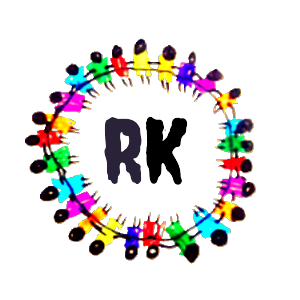Learning to program offers multiple benefits at personal and professional levels. Some of the reasons it could be worth your while to learn programming include:
- Problem Solving: In your overall life, analytical thinking, programmed through programming, will help you tackle problems in a logical and rational way—basically, breaking them down into smaller sub-problems that are easier to handle. This kind of thinking is transferable to many other areas of a person’s life.
Creative Problem-Solving: You can come up with creative solutions for complicated problems and find entirely new solutions to multifarious technology, science, or even common problems. - Employment opportunities
High Demand: Skilled users are among the most sought after in all industries, including tech, finance and healthcare. Their demand generally results in high-paying jobs.
Wide range of fields: Programming introduces you to many opportunities in careers ranging from web development to software engineering and the like, so you get to choose what you are interested in. - Automation and Efficiency
Automating Tasks: Programming enables you to do away with tedious and repetitive tasks, unlike most procedures, giving you much time and space to do big and important tasks.
Improving Processes: You can automate everything from business operations to personal projects by writing tools and scripts that will do the job fast and efficiently. - Understanding Technology
Technological Literacy: Learning the art of programming will allow one to understand how tools and applications which you use every day work, they make you way more enlightened and very capable of making wise, informed decisions on technology.
Troubleshooting: It gets easier to troubleshoot and fix problems with software and digital devices. - Innovation and Creativity
New Solutions Development: Programming helps to create new software, applications, and systems. That basically means development of new solutions; thus, it contributes positively to technological advancement.
Creative Projects: If you want to create a game or develop a mobile app or a website, then the program will give you the necessary tools to help bring your creative vision to life. - Collaboration and Teamwork
Working with Others: Programming often involves working with other people on projects, therefore helping you develop teamwork and communication skills.
Community and Networking: There is a big community of programmers—a very supportive community—in which one learns networking and collaboration and how to learn from people. - Adaptability and Future-Proofing
Evolving Technology: Programming skills help in adapting to new tools and platforms that come along with evolving technology so that the skill remains relevant and valuable.
Future Opportunities: Programming enables you to stay ahead in changes in technology and thus be more flexible in the changing work environment. - Personal Fulfillment
Sense of Achievement: To build things from the ground up and then code to make them work is a great feel of accomplishment.
Continuous Learning: Programming is an area where changes and evolution are in continuation, and through that, learning and enhancement keep going. - Interdisciplinary Applications
Cross-disciplinary application: Programming skills might be used in many different fields, such as mathematics, science, engineering, art, and social sciences; hence, it can enhance working on interdisciplinary projects and going through many different fields of interest. 10. Critical Thinking and Logic
Structured Thinking: One of the benefits of programming is the development of one’s logical thinking and clear structuring of thought, which is quite useful in many areas of life and study.
Decision Making: It enhances one’s power of decision-making by teaching how to look through various approaches and reach the most suitable one for a particular situation.

Leave a Reply